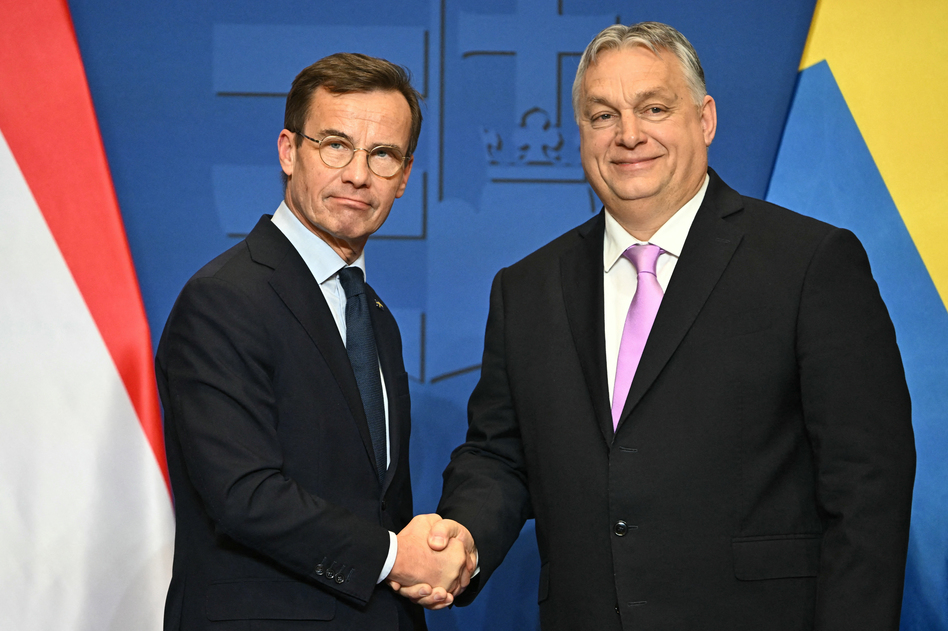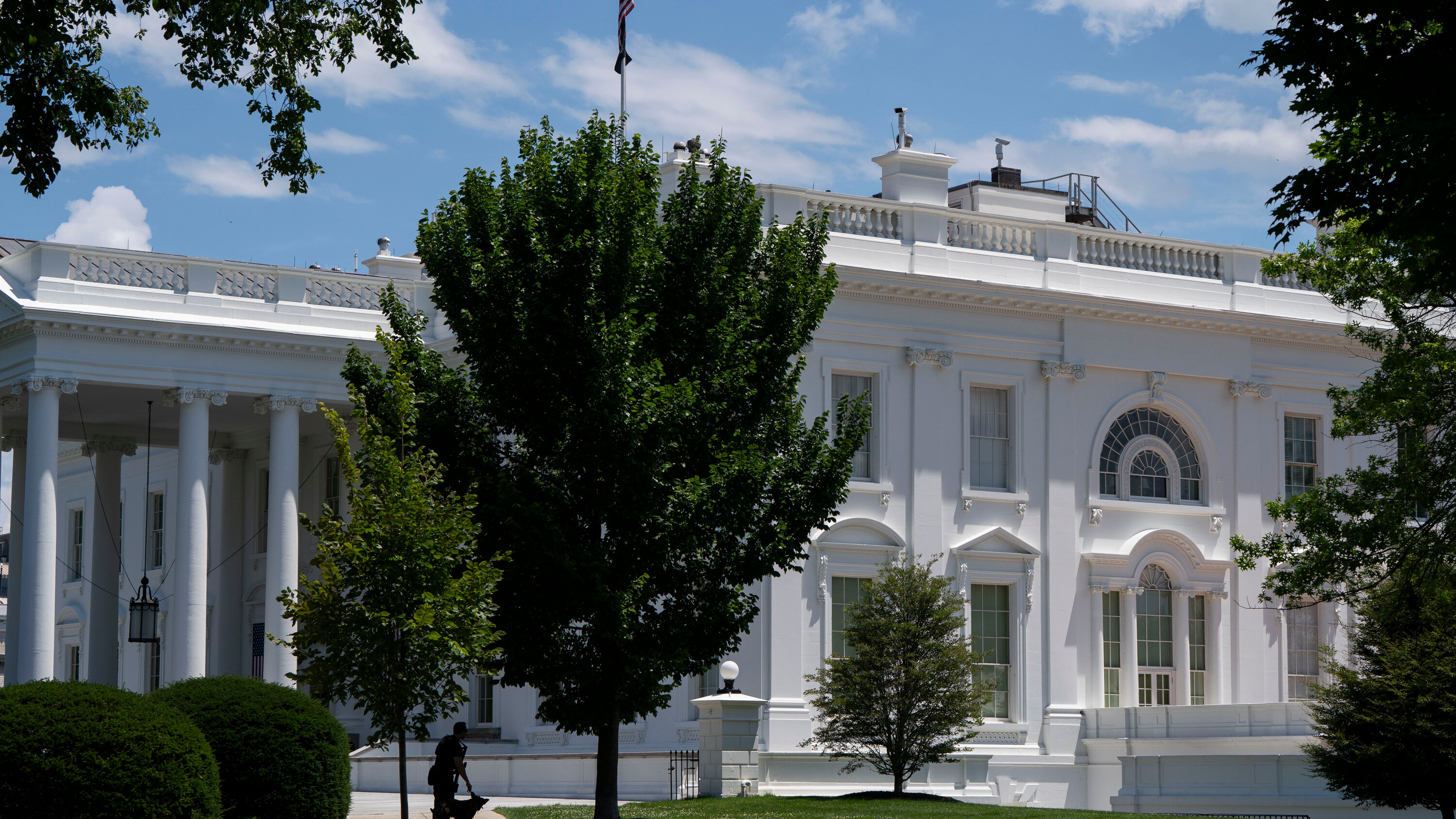Ukraine's NATO Bid: Trump's Skepticism And Its Significance

Table of Contents
Trump's Opposition to Ukraine's NATO Aspiration
Reasons for Trump's Skepticism
Trump's opposition to Ukraine's NATO aspirations stemmed from a confluence of factors, reflecting his broader foreign policy approach.
-
Burden-sharing concerns: Trump repeatedly questioned whether NATO allies, including potential members like Ukraine, were contributing their "fair share" financially and militarily. He argued that some nations were free-riding on US defense spending, a sentiment that extended to his view of Ukraine's potential contribution to the alliance. This skepticism fueled his reluctance to fully embrace Ukraine's NATO bid.
-
Transactional approach to foreign policy: Trump's transactional approach prioritized bilateral deals and short-term gains over multilateral commitments and collective security. This contrasted sharply with the fundamental principles of NATO, which emphasizes collective defense and mutual support among member states. Ukraine's integration, requiring long-term commitments, didn't fit comfortably within this framework.
-
Perceived weakness in Ukraine: Trump often publicly expressed concerns about Ukraine's perceived weakness and corruption, suggesting it wasn't ready for the responsibilities and obligations of NATO membership. These criticisms often overshadowed discussions of Ukraine's strategic importance and its commitment to reforms.
-
Russia's Influence: Trump's hesitancy was frequently interpreted, both domestically and internationally, as an attempt to appease Russia, a key opponent of Ukrainian NATO membership. This perception further fueled concerns about the potential consequences for Ukraine's security and the stability of the region.
Public Statements and Actions
Trump's skepticism wasn't merely confined to private conversations; it was repeatedly expressed publicly. For example, he questioned the strategic value of NATO expansion during various press conferences and interviews. His administration also notably hesitated to provide Ukraine with the same level of military and political support enjoyed by other Eastern European allies seeking closer ties with the West. The absence of a clear and consistent US stance on Ukraine's NATO membership during his presidency sent mixed signals to both Kyiv and Moscow. This ambiguity arguably hampered Ukraine's efforts to secure its place within the alliance.
Geopolitical Implications of Trump's Stance
Impact on Ukraine's Security
Trump's skepticism towards Ukraine's NATO aspirations had significant repercussions for Ukraine's security.
-
Increased vulnerability to Russian aggression: The lack of a clear US commitment to Ukraine's NATO membership emboldened Russia and increased the risk of further aggression. The ambiguity surrounding the US security guarantee weakened deterrence against potential Russian attacks.
-
Deterrence weakened: The uncertainty surrounding US support for Ukraine undermined the credibility of any deterrent against Russian expansionism. Moscow could perceive a reduced risk of US intervention, potentially leading to more assertive actions.
-
Reliance on bilateral agreements: Without the collective security umbrella offered by NATO, Ukraine was forced to rely more heavily on bilateral security agreements with individual countries, a less robust and potentially less reliable form of protection.
Effect on Transatlantic Relations
Trump's position on Ukraine's NATO bid also had a significant impact on transatlantic relations.
-
Strain on US-European relations: Trump's skepticism created tension and discord within the NATO alliance, particularly between the US and its European allies who strongly supported Ukraine's aspirations. This division undermined the alliance's unity and effectiveness.
-
Questioning of NATO's relevance: Trump's repeated questioning of NATO's value and effectiveness, often linked to his views on Ukraine's membership, further damaged the alliance's credibility and fostered doubt among its members.
-
Erosion of trust: Trump's actions and rhetoric damaged trust between the US and its allies, especially in Eastern Europe, where concerns about Russian aggression were particularly acute. This erosion of trust had far-reaching consequences for collective security in the region.
The Current State of Ukraine's NATO Bid
Post-Trump Developments
The Biden administration has adopted a markedly different approach towards Ukraine's NATO aspirations. There's been a renewed emphasis on supporting Ukraine's sovereignty and territorial integrity, including increased military assistance and stronger political backing for its Euro-Atlantic integration. This shift has provided renewed hope for Ukraine's pursuit of NATO membership.
Challenges and Opportunities
Despite the increased support under the Biden administration, significant challenges remain to Ukraine's NATO bid. These include ongoing internal reforms, the need to address concerns about corruption, and the continued threat of Russian aggression. However, the ongoing war has also highlighted Ukraine's resilience and determination, potentially strengthening its case for membership.
Public Opinion in Ukraine and NATO Member States
Public support for Ukraine NATO membership is high within Ukraine itself, where joining the alliance is seen as a vital step towards securing the country's long-term future and independence. While support exists among NATO member states, particularly in Eastern Europe, there remain varying levels of enthusiasm. Concerns about potential escalation with Russia and the implications for alliance unity continue to influence the debate.
Conclusion
Trump's skepticism towards Ukraine's NATO bid had significant and lasting geopolitical implications, impacting Ukraine's security, transatlantic relations, and the overall credibility of NATO. While the Biden administration has signaled a shift towards greater support, the challenges remain considerable. Understanding the complexities of Ukraine NATO membership and the historical context of Trump's position is crucial for navigating the future of this crucial geopolitical issue. Further research and informed discussion are needed to ensure a robust and secure future for Ukraine within the broader European security architecture. The future of Ukraine's NATO aspirations will depend on continued efforts towards internal reform, sustained international support, and the evolving geopolitical landscape.

Featured Posts
-
 White House Cocaine Incident Secret Service Investigation Update
Apr 26, 2025
White House Cocaine Incident Secret Service Investigation Update
Apr 26, 2025 -
 The Company That Laid You Off Wants You Back What To Say
Apr 26, 2025
The Company That Laid You Off Wants You Back What To Say
Apr 26, 2025 -
 The Ahmed Hassanein Story Will He Make Nfl Draft History
Apr 26, 2025
The Ahmed Hassanein Story Will He Make Nfl Draft History
Apr 26, 2025 -
 Escape Disney 7 Unmissable Orlando Restaurants For 2025
Apr 26, 2025
Escape Disney 7 Unmissable Orlando Restaurants For 2025
Apr 26, 2025 -
 The Rise Of Chinese Automakers A Competitive Analysis
Apr 26, 2025
The Rise Of Chinese Automakers A Competitive Analysis
Apr 26, 2025
